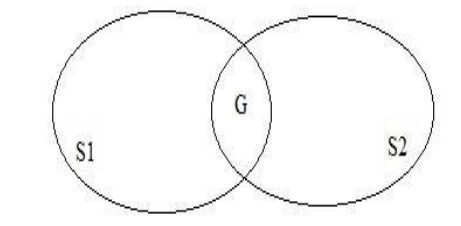Intelligence is an important ability and it is closely associated with the educational achievement of an individual. Among the qualities that are needed for an individual to lead a happy and contended life, the most important one is intelligence. Intelligence is an important factor for one’s personal development. We must have noticed that the individual difference among people. Difference in their level of achievement and adaptation according to their environment are due to their difference in their intelligence.
The performance of any task systematically and without any hesitation or interruption is considered a symbol of intelligence. The world’s greatest literary person, Scientists, Psychologists and Politicians are arriving at special attainment in the context of intelligence.
NATURE OF INTELLIGENCE
The true nature of intelligence can be understood by first defining it to understand its meaning, discussing the various theories explaining its structure in terms of the several constituents and factors and identifying the numerous other aspects and characteristics related to intelligence and its functioning. The term intelligence means intellect and understanding. Generally speaking alertness with regard to the actual situation of life is an index of intelligence. From the lay man point of view intelligence means common sense or application part of knowledge. Intelligence is generally guessed from the way a person appears to understand a fact or a group of facts, and the manner in which he/she responds to those facts.
THEORIES OF INTELLIGENCE
The theories of intelligence propagated by psychologists from time to time have explained the meaning and nature of intelligence. Intelligence is not made up of only one ability if it includes more than one ability. The unifactor theory explains intelligence as a general factor, which forms the basis for all the activities.
Single Factor Theory
This theory, the eldest in origin, holds that intelligence consists of one factor, a fund of intellectual competence, which is universal to all activities of the individual. A man who has vigor can move as much on one direction as he can in another.
Similarly, if he has a fund of intelligence, he can utilize it in any sphere of life and depending on it, be a successful in one sphere as in any other. The ideas propagated by this theory are not, however, born out in real life situation.
It may be seen for instance that a child who is good in mathematics may not, despite genuine interest and diligence, be able to do as well his civics while an above average performer in the laboratory may not exhibit comparable, competence in learning a language.
Two Factor Theory
This theory was developed by Charles Spearman. He was the opinion that intelligence consists of two factors i.e., general intelligence, ‘g’ general mental ability is always the same for the same individual or present is all the individual exercises and common for all activities and the second factor ‘s’ varies from task to task according to its nature.

It is also noticed that different individuals differ both in their ‘g’ as well as‘s’ factors. It is believed that ‘g’ is innate, omnipresent, and values with the individual ability where as ‘s’ factor is acquired and differ from different action. For example, an individual’s performance in literature is partly due to his/her general intelligence and partly due to some specific aptitude for language ie, g + s in mathematics his/her performance may be the result of g + S2 in drawing may be due to g + S3 and in social sciences in g + S4 and so on. Thus the factor ‘g’ is present in all specific activities and the amount of ‘g’ and ‘s’ factors required in an activity will depend upon its nature.
Multi Factor Theory
E.L. Thorndike the famous Psychologist propounded this multifactor theory of intelligence. This theory holds that intelligence is the means of undermined independent rudimentary elements or intelligence in the combination of numerous separate element or the factors of intelligence are independent to each other. These are numerical reasoning, vocabulary classification and sentence completion etc. This theory believes that every tasks needs different abilities or a host of highly independent factors and there is nothing like general ability
Thorndike believes that if a person gets 60 marks in mathematics and English it means there may be two or three factors are present and correlating each other. He concluded that in very task a group of abilities may belong to certain faculty and clear that the intelligence is composed of highly particularized and independent faculties.
Thorndike distinguished four attributes of intelligence. They are level, range, area and speed.
(a) Level : It refers to the difficulty of a task than can be solved. It means if a task arranged in a sequential order and the person attain the task up to a certain level indicates his/her degree of intelligence.
(b) Range (width): Range refers to the number of tasks at any given degree of difficulty that one can solve.
(c) Area: It is the total number of situations at each level to which the individual is able to respond indicate his/her intelligence.
(d) Speed: The rapidity, with which the individual can solve or respond to the test item, is called as his speed.
It can be interpreted that when we test a person or give him/her a certain number of tasks (area) these tasks vary in difficulty (level) there are number of items at each level of difficulty (range) and they respond in a given frame (speed).